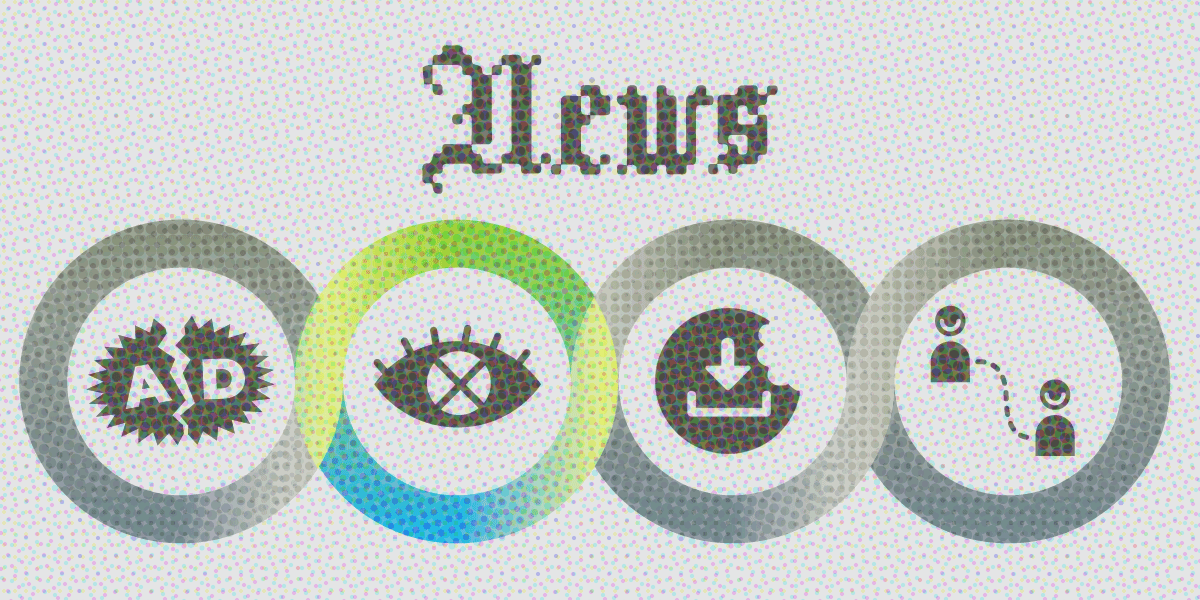Today's Twitter threads (a Twitter thread).
Inside: To save the news, ban surveillance ads; and more!
Archived at: pluralistic.net/2023/05/31/con…
#Pluralistic
1/
Inside: To save the news, ban surveillance ads; and more!
Archived at: pluralistic.net/2023/05/31/con…
#Pluralistic
1/

Tonight (31/5, 1830h) I'm at #Manchester @WaterstonesMCR with *Red Team Blues*, hosted by @cubicgarden:
waterstones.com/events/in-conv…
On 1/6, it's #London for @uclcs's #PeterKirstein Lecture:
eventbrite.co.uk/e/peter-kirste…
Next: #Edinburgh, #London & #Berlin!
redteamblues.com
2/
waterstones.com/events/in-conv…
On 1/6, it's #London for @uclcs's #PeterKirstein Lecture:
eventbrite.co.uk/e/peter-kirste…
Next: #Edinburgh, #London & #Berlin!
redteamblues.com
2/

To save the news, ban surveillance ads: No publisher will ever beat ad-tech at spying, but no tech company will ever understand a publisher's content better than they do.
3/
https://twitter.com/doctorow/status/1663804904190758913
3/

Hey look at this
* Neo-#Luddites and #BigTech ft.com/content/f312c9…
* 'Catastrophe Exposure': State Farm Stops Selling Insurance in California gizmodo.com/climate-change…
* Judge Makes History, Holding #BorderSearches of Cell Phones Require a Warrant eff.org/deeplinks/2023…
4/
* Neo-#Luddites and #BigTech ft.com/content/f312c9…
* 'Catastrophe Exposure': State Farm Stops Selling Insurance in California gizmodo.com/climate-change…
* Judge Makes History, Holding #BorderSearches of Cell Phones Require a Warrant eff.org/deeplinks/2023…
4/

#20yrsago #Everquest social networks need the Mafia web.archive.org/web/2003030100…
#20yrsago #Streisand suing environmentalists over California Coastline project californiacoastline.org/streisand/laws…
5/
#20yrsago #Streisand suing environmentalists over California Coastline project californiacoastline.org/streisand/laws…
5/

#15yrsago English nurseries fingerprinting parents “for security” news.bbc.co.uk/2/hi/uk_news/e…
#15yrsago Happy #FirstSale day! everybodyslibraries.com/2008/06/01/100…
#10yrsago Coloring the #HauntedMansion …gforgottenhauntedmansion.blogspot.com/2013/06/stroll…
6/
#15yrsago Happy #FirstSale day! everybodyslibraries.com/2008/06/01/100…
#10yrsago Coloring the #HauntedMansion …gforgottenhauntedmansion.blogspot.com/2013/06/stroll…
6/

#10yrsago What is the social media style of protest? technosociology.org/?p=1255
#10yrsago Turkish Spring: Taksim #GeziPark protests in Istanbul occupygezipics.tumblr.com/post/518677729…
#10yrsago Mouldering city built of bread is a metaphor for Earth without humans web.archive.org/web/2013072814…
7/
#10yrsago Turkish Spring: Taksim #GeziPark protests in Istanbul occupygezipics.tumblr.com/post/518677729…
#10yrsago Mouldering city built of bread is a metaphor for Earth without humans web.archive.org/web/2013072814…
7/

#5yrsago Leaks show that #Google expected its modest #AI-for-#drones business to expand exponentially theintercept.com/2018/05/31/goo…
#5yrsago Vermont offers remote workers a $10,000 subsidy to relocate to the state qz.com/work/1289727/v…
8/
#5yrsago Vermont offers remote workers a $10,000 subsidy to relocate to the state qz.com/work/1289727/v…
8/

#5yrsago Oregon employers warn that the state has run out of workers who can pass a drug test wweek.com/news/2018/05/3…
#5yrsago Customs stole a US citizen’s life savings when he boarded a domestic flight, now he’s suing to get it back washingtonpost.com/news/wonk/wp/2…
9/
#5yrsago Customs stole a US citizen’s life savings when he boarded a domestic flight, now he’s suing to get it back washingtonpost.com/news/wonk/wp/2…
9/

#5yrsago The most interesting thing about the “#ThanksgivingEffect” study is what it tells us about the limits of data anonymization wired.com/story/the-than…
10/
10/

#5yrsago #Uganda’s unenforceable #SocialMediaTax is augmented by a biometric requirement for SIM card purchases globalvoices.org/2018/06/01/net…
#5yrsago #Vanuatu will use drones to deliver #vaccines across its remote chain of tiny islands spectrum.ieee.org/drone-delivery…
11/
#5yrsago #Vanuatu will use drones to deliver #vaccines across its remote chain of tiny islands spectrum.ieee.org/drone-delivery…
11/

#5yrsago Spain’s #austerity-loving, authoritarian Prime Minister loses no-confidence vote and is replaced by a socialist independent.co.uk/news/world/eur…
12/
12/

#5yrsago At ex-CIA panelist’s insistence, #OxfordUnion reneges on promise to upload video of #whistleblowing debate dailypublic.com/articles/05312…
#1yrago #Inflation is caused by too little capacity: Not too much money pluralistic.net/2022/06/01/fac…
13/
#1yrago #Inflation is caused by too little capacity: Not too much money pluralistic.net/2022/06/01/fac…
13/

Yesterday's threads: Ian McDonald's "Hopeland"; and more!
14/
https://twitter.com/doctorow/status/1663466838473228288
14/

My latest novel is Red Team Blues, available wherever books are sold!
Signed copies at @DarkDel:
darkdel.com/store/p2873/We…
15/
Signed copies at @DarkDel:
darkdel.com/store/p2873/We…
15/
My latest nonfiction book is Chokepoint Capitalism (with @rgibli), nonfiction about monopoly and fairness in creative labor markets.
chokepointcapitalism.com
Signed copies available from @BookSoup:
booksoup.com/book/978080700…
16/
chokepointcapitalism.com
Signed copies available from @BookSoup:
booksoup.com/book/978080700…
16/
My ebooks and audiobooks (from @torbooks, @HoZ_Books, @mcsweeneys, @BeaconPressBks et al) are for sale all over the net, but I sell 'em too, and when you buy 'em from me, I earn twice as much and you get books with no DRM and no license "agreements."
craphound.com/shop/
17/
craphound.com/shop/
17/
Upcoming appearances:
* @uclcs Peter Kirstein Lecture, 6/1 (#London):
eventbrite.co.uk/e/peter-kirste…
* @CymeraF, 6/3 (#Edinburgh)
cymerafestival.co.uk/cymera23-event…
* Red Team Blues with @Marthalanefox at the @bl, 6/5 (#London):
bl.uk/events/an-even…
18/
* @uclcs Peter Kirstein Lecture, 6/1 (#London):
eventbrite.co.uk/e/peter-kirste…
* @CymeraF, 6/3 (#Edinburgh)
cymerafestival.co.uk/cymera23-event…
* Red Team Blues with @Marthalanefox at the @bl, 6/5 (#London):
bl.uk/events/an-even…
18/

Upcoming appearances (cont'd):
* @rightscon, "#Interoperability: from buzzword to a map of solutions," Jun 6 (#CostaRica):
rightscon.org/program/
* @republica keynote, 6/7 (#Berlin)
re-publica.com/de/news/rp23-k…
19/
* @rightscon, "#Interoperability: from buzzword to a map of solutions," Jun 6 (#CostaRica):
rightscon.org/program/
* @republica keynote, 6/7 (#Berlin)
re-publica.com/de/news/rp23-k…
19/

Upcoming appearances (cont'd):
* @otherlandberlin event for Red Team Blues, 6/8 (#Berlin)
otherland-berlin.de/de/event-detai…
20/
* @otherlandberlin event for Red Team Blues, 6/8 (#Berlin)
otherland-berlin.de/de/event-detai…
20/

Recent appearances:
* How To Save News Media From Our Tech Overlords (@CANADALAND)
canadaland.com/podcast/888-ho…
* Most AI is not artificial or intelligent (with @jamesbridle)
* @machinekillspod
soundcloud.com/thismachinekil…
21/
* How To Save News Media From Our Tech Overlords (@CANADALAND)
canadaland.com/podcast/888-ho…
* Most AI is not artificial or intelligent (with @jamesbridle)
* @machinekillspod
soundcloud.com/thismachinekil…
21/

You can also follow these posts as a daily blog at pluralistic.net: no ads, trackers, or data-collection!
Here's today's edition: pluralistic.net/2023/05/31/con…
22/
Here's today's edition: pluralistic.net/2023/05/31/con…
22/
If you're a @Medium subscriber, you can read these essays - and previews of upcoming columns and exclusives on doctorow.medium.com.
My latest Medium column is "Ideas Lying Around: Milton Friedman was a monster, but he wasn't wrong about this"
doctorow.medium.com/ideas-lying-ar…
23/
My latest Medium column is "Ideas Lying Around: Milton Friedman was a monster, but he wasn't wrong about this"
doctorow.medium.com/ideas-lying-ar…
23/
If you prefer a newsletter, subscribe to the plura-list, which is also ad- and tracker-free, and is utterly unadorned save a single daily emoji. Today's is "🤱🏻". Suggestions solicited for future emojis!
Subscribe here: mail.flarn.com/mailman/listin…
24/
Subscribe here: mail.flarn.com/mailman/listin…
24/
Are you trying to wean yourself off Big Tech? You can read my work elsewhere, but it is now a #TwitterCrime to tell you how. Please visit my site, pluralistic.net, for links to find me on less-unhinged places (I can only imagine that my days here are numbered).
eof/
eof/
• • •
Missing some Tweet in this thread? You can try to
force a refresh










